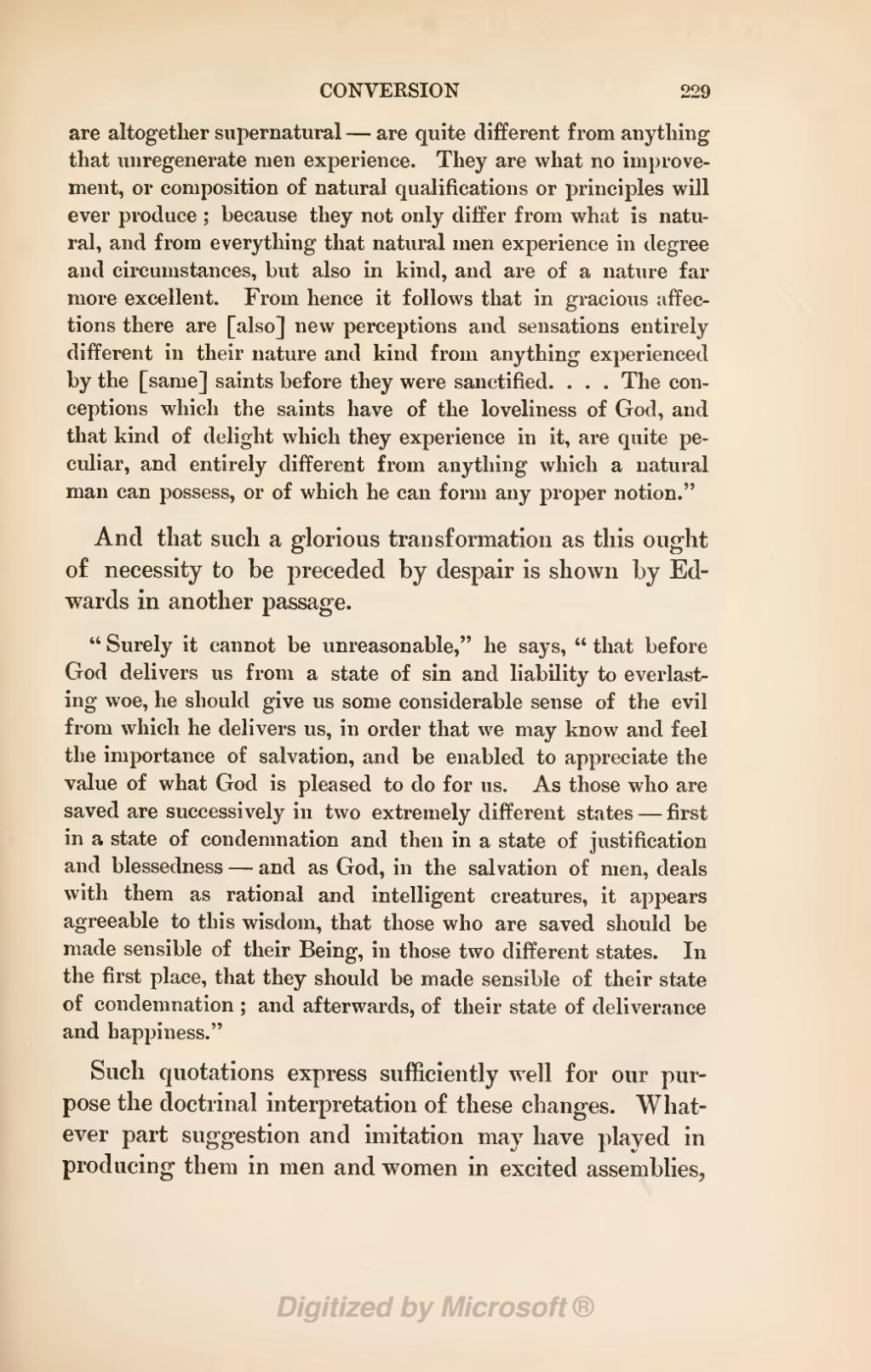are altogether supernatural—are quite different from anything that unregenerate men experience. They are what no improvement, or composition of natural qualifications or principles will ever produce; because they not only differ from what is natural, and from everything that natural men experience in degree and circumstances, but also in kind, and are of a nature far more excellent. From hence it follows that in gracious affections there are [also] new perceptions and sensations entirely different in their nature and kind from anything experienced by the [same] saints before they were sanctified. … The conceptions which the saints have of the loveliness of God, and that kind of delight which they experience in it, are quite peculiar, and entirely different from anything which a natural man can possess, or of which he can form any proper notion."
And that such a glorious transformation as this ought of necessity to be preceded by despair is shown by Edwards in another passage.
"Surely it cannot be unreasonable," he says, "that before God delivers us from a state of sin and liability to everlasting woe, he should give us some considerable sense of the evil from which he delivers us, in order that we may know and feel the importance of salvation, and be enabled to appreciate the value of what God is pleased to do for us. As those who are saved are successively in two extremely different states—first in a state of condemnation and then in a state of justification and blessedness—and as God, in the salvation of men, deals with them as rational and intelligent creatures, it appears agreeable to this wisdom, that those who are saved should be made sensible of their Being, in those two different states. In the first place, that they should be made sensible of their state of condemnation; and afterwards, of their state of deliverance and happiness."
Such quotations express sufficiently well for our purpose the doctrinal interpretation of these changes. Whatever part suggestion and imitation may have played in producing them in men and women in excited assemblies,
